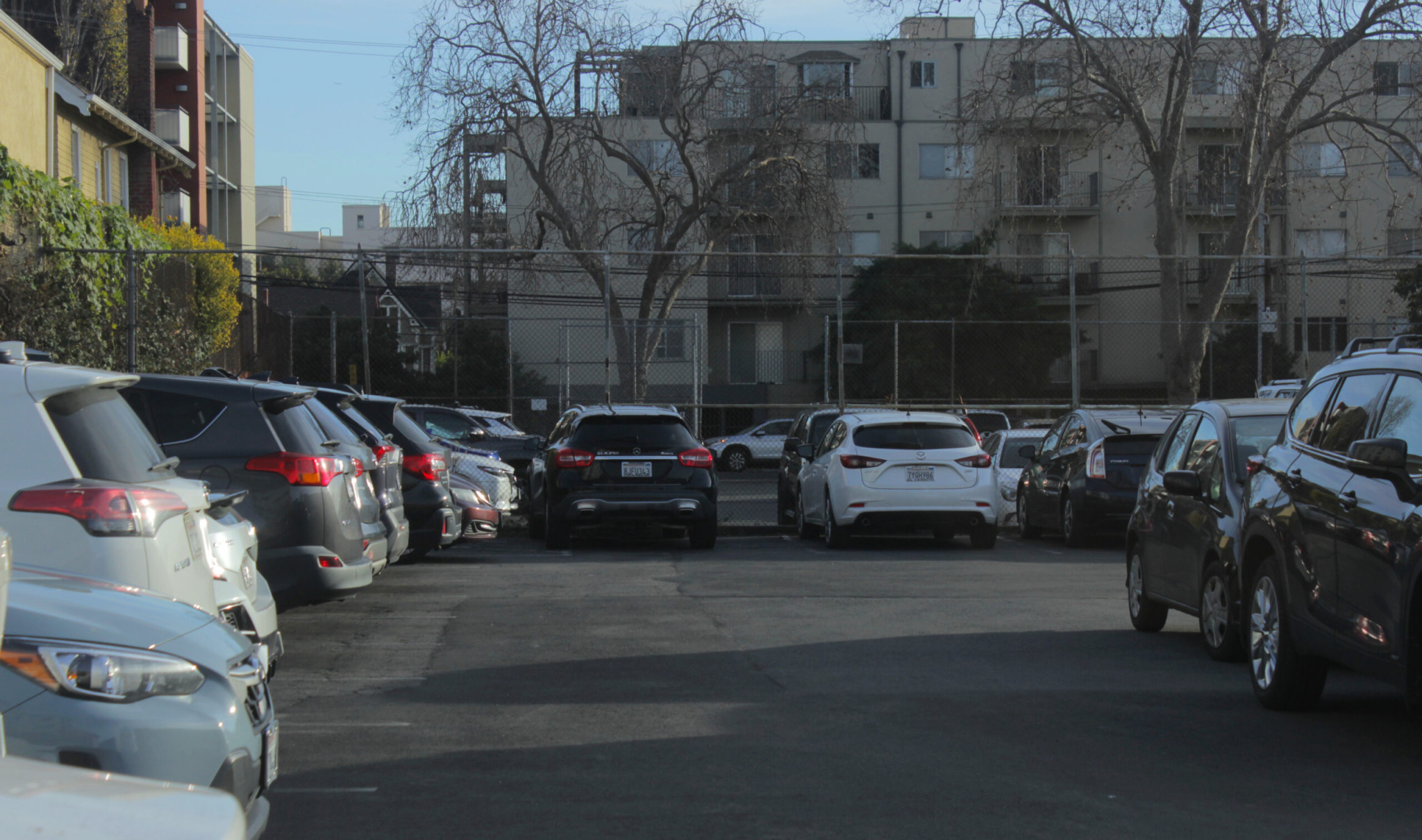“There’s nothing worse than having a stressful morning already and then pulling up to the school parking lot when you teach a first-period class and finding that there are no (parking) spots available,” said Julie Panebianco, a Universal Ninth Grade English teacher.
This is an experience shared by many teachers at BHS and in schools around Berkeley Unified School District. Each morning, teachers make their way to work, often by car due to many teachers living outside of Berkeley, and hunt for parking spots, at times to no avail.
“If you get here after 8:15 a.m. you typically won’t get a spot,” said Colleen Simon-O’Neill, who teaches chemistry and Biotech at BHS. She recounted having to make a decision between parking near BHS and paying for a meter or running to school in order not to be late.
A survey done by BUSD showed that 80 percent of teachers drive to work each day, out of necessity or a lack of available options. BHS’s parking lot currently has less than 150 parking spots, which means that for many teachers, time is of the essence when it comes to whether they park in the staff parking lot, in nearby neighborhoods, or pay at a meter or parking garage.
A lack of parking for teachers is an issue that has affected BHS for decades. In 2001, BHS converted tennis courts on Milvia and Durant into 130 parking spots, according to BUSD. Those courts were never replaced, and to date, tennis players at BHS have no home court.
In November of 2020, voters supported Measure G, a bond worth $380 million focused on school construction, outlining a plan to build a $27 million multi-level parking garage for teachers, according to Berkeleyside. The plan was met with criticism from transit advocates who said BUSD should instead be turning its attention to alternatives to driving, pointing to BUSD’s sustainability plan.
In response, the district has shown no intention of moving forward with the parking garage, instead turning its attention to solutions such as distributing more parking permits or extending time limits on parking meters.
Furthermore, some transit advocates view the lack of parking for teachers as a way for BUSD to encourage BHS community members to get to school through means other than driving.
“We think there are a lot of ways that the school district could help teachers, staff and students with other ways of getting to and from Berkeley High (School),” said Tom Lent of Walk Bike Berkeley, an organization that aims to encourage Berkeley citizens to avoid driving as their mode of transportation, particularly by ensuring that people can walk and bike safely. Lent said that a key first part of fixing the issue of parking for teachers should be spreading awareness of other forms of transportation such as E-Bikes or public transit, and removing barriers to access them.
A survey done by BUSD in May showed that of the respondents, roughly 80 percent of staff members at BHS drive as their primary mode of transportation, although one-third of respondents said that they would be willing to change their mode of transportation if incentivized to.
“What I really would like to see from BUSD is a more clear commitment to providing better incentives for teachers to use alternate modes (of transportation) if they’re able to,” said Liza Lutzker, who works for Walk Bike Berkeley. “Right now there’s actually not any incentives for people to not drive. In fact, it’s the other way around. By providing free parking, you’re actually providing an incentive to drive whereas people who might take BART or AC Transit actually have to pay.”
In the interim, teachers bide their time waiting for a solution to be decided on.
Panebianco said that although she understands the issue of parking can be viewed as trivial, in practice it makes an already difficult job harder.
“This job is already hard,” Panebianco said. “It’s just despite your best intentions, sometimes the system is just not set up in a way that feels supportive, and it just makes everything harder.”





